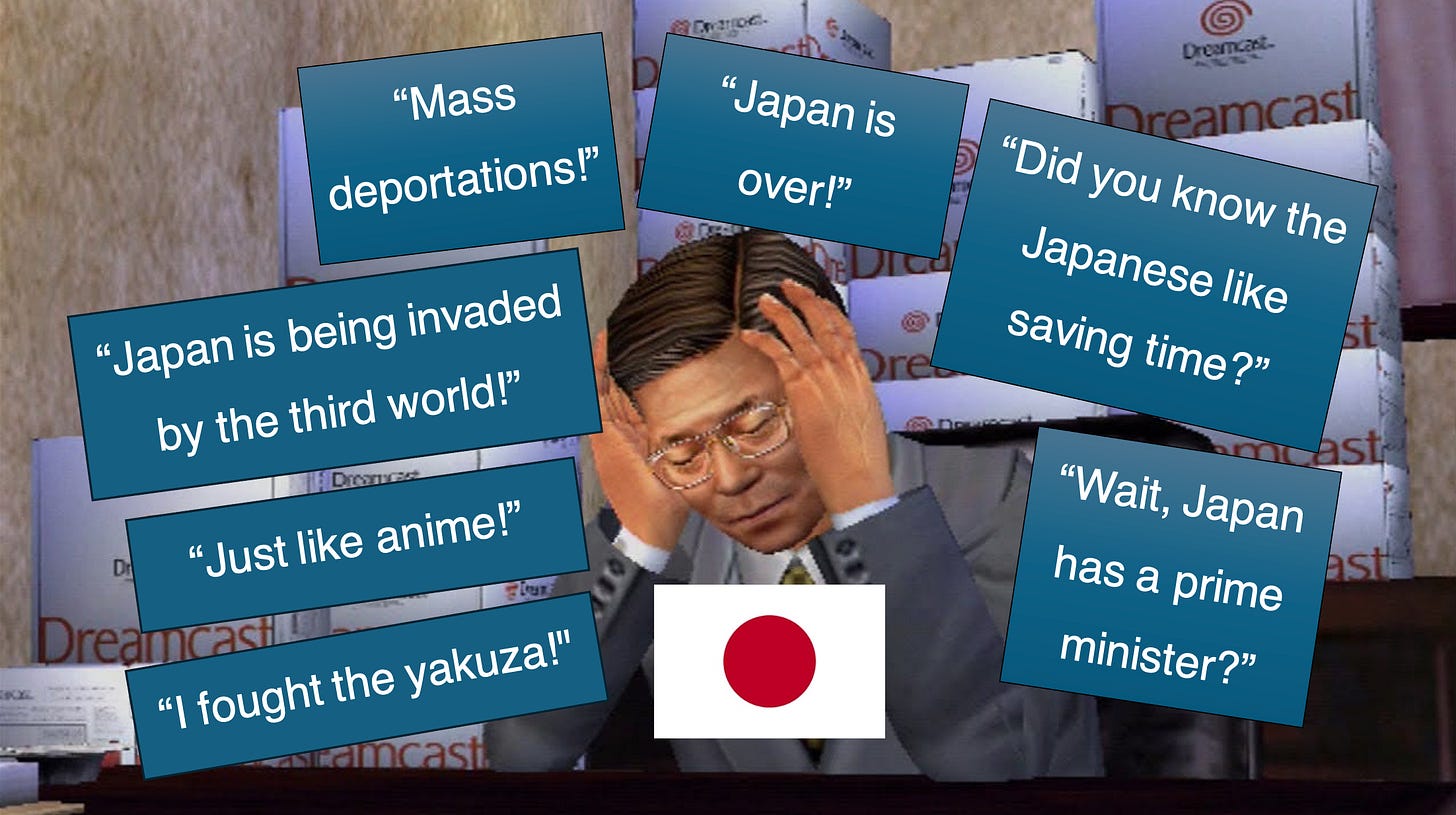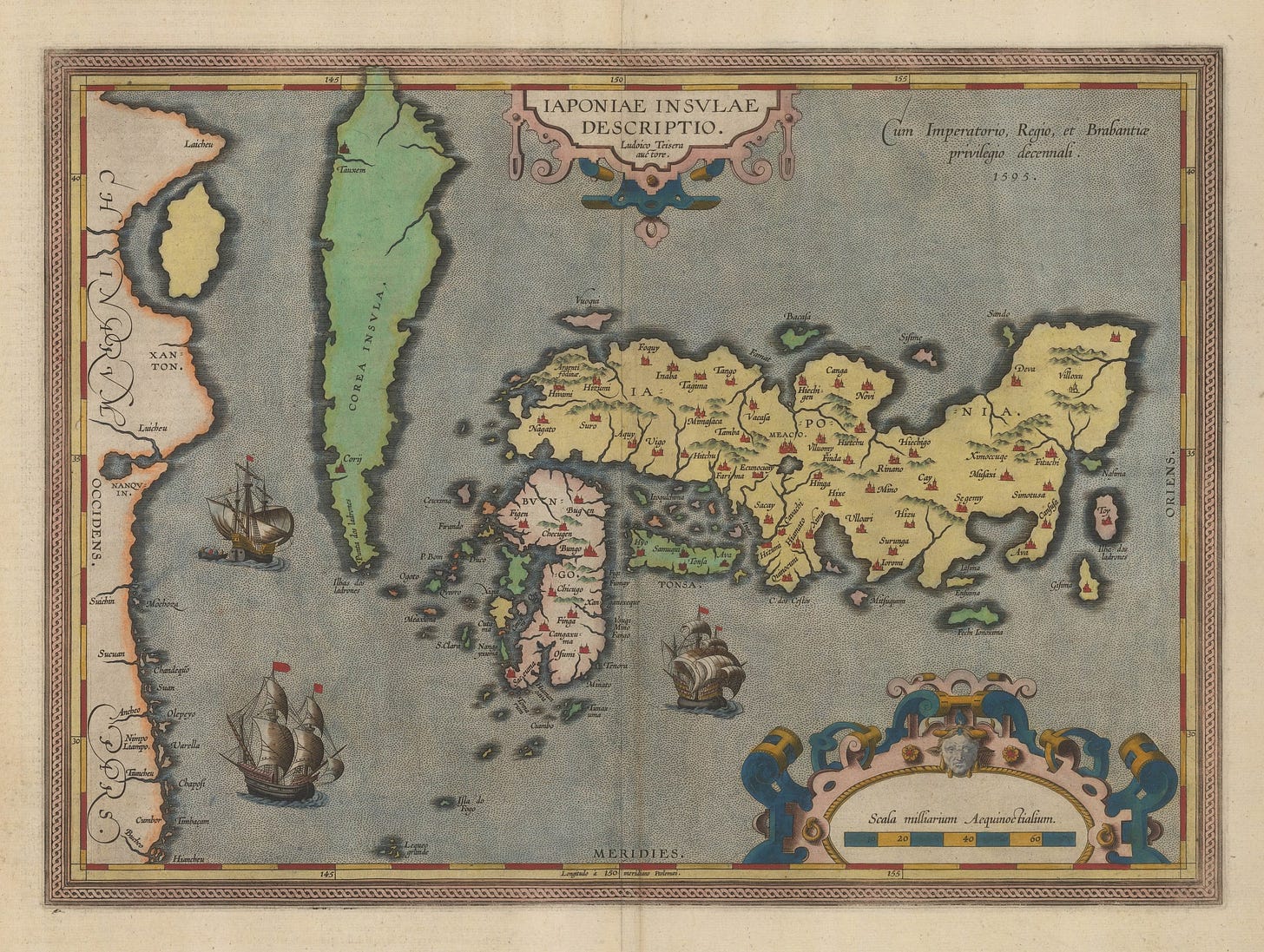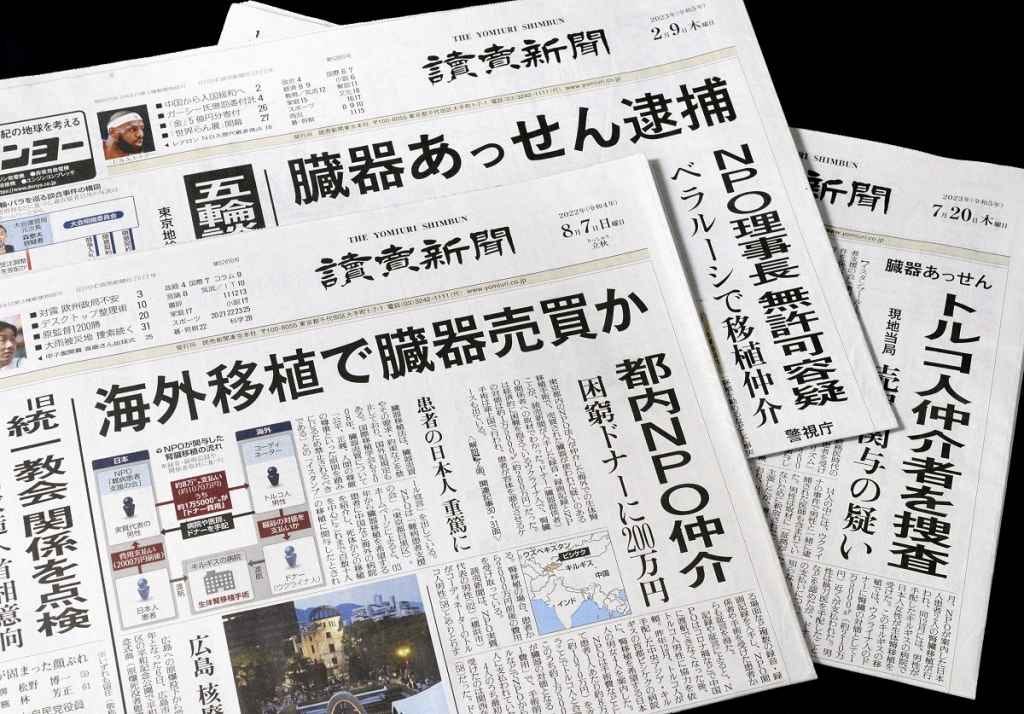Why Fake News About Japan is Spreading
From political agendas to language barriers, there is no shortage of misinformation around the Land of the Rising Sun.
Foreign Perspectives is a mix of free and paid content. Certain articles such as these are exclusively for paid subscribers. If you enjoy the work I do, please consider upgrading to a monthly or yearly subscription. Your support is greatly appreciated and ensures that this Substack can continue to deliver high quality pieces.
In The Travels of Marco Polo, the people of Japan are described as having “tremendous quantities of gold.” So rich is this country that “the King’s palace is roofed with pure gold, and his floors are paved in gold two fingers thick.” Such lavish stories were all Europeans had to go on about “Zipangu” back in the 13th century when Travels was written. This includes Marco Polo himself who never actually visited Japan.
The intrepid Venetian explorer most likely got his information secondhand during his time in China. Japan did export gold and other valuable commodities to the wealthy Song dynasty, but the country might as well have been a different planet to Marco. It would be well over 200 years before the first Westerners stepped foot in the Land of the Rising Sun with the arrival of Portuguese merchants in 1543. One can only imagine what must have been going through their heads considering the tall tales they had heard.
While Japan is no longer an isolated country, most Westerners still have no real conception around what’s actually happening here. Urban legends like there being vending machines which sell used panties on every street corner are usually based on outdated information in an attempt to make Japan seem more “weird” than it really is. In more serious cases, Westerners with certain political agendas will attempt to use Japan to prove their talking points around immigration, race, and other shibboleths despite having very little real understanding of Japanese society. Just this month, people on Anglosphere social media went wild with blatantly false claims that the country’s new prime minister was pursuing “mass deportations” of foreigners.
Despite the invention of the internet giving us 24/7 updates on everything going on in the world, misinformation around Japan continues to run rampant. Our shift into an online landscape has only made this problem worse, and it’s enough of an issue that I felt compelled to write about why fake news around Japan is so widespread.
Few qualified people know Japanese and English
The obvious language barrier is the biggest immediate obstacle to getting reliable information from Japan. One habit of mine that I’ve basically done since the day I first arrived is turning the television on when I get home so I can see what stories are being discussed in the zeitgeist. Even with the internet, TV is still how the majority of Japanese people get their news and popular variety shows which cover trending social topics are extremely popular.
Unsurprisingly, all of this is in Japanese. If you’re a monolingual English speaker, you’ll inevitably have to rely on translations which only give you a small sliver of daily events in Japan. Sure, you can go to the BBC, The New York Times, or any “respected” publication for some of the highlights, such as the results of major elections, but most of these places aren’t going to report on stories of local interest which give a better sense of how the average Japanese person might feel about things or what news items are gripping the country.
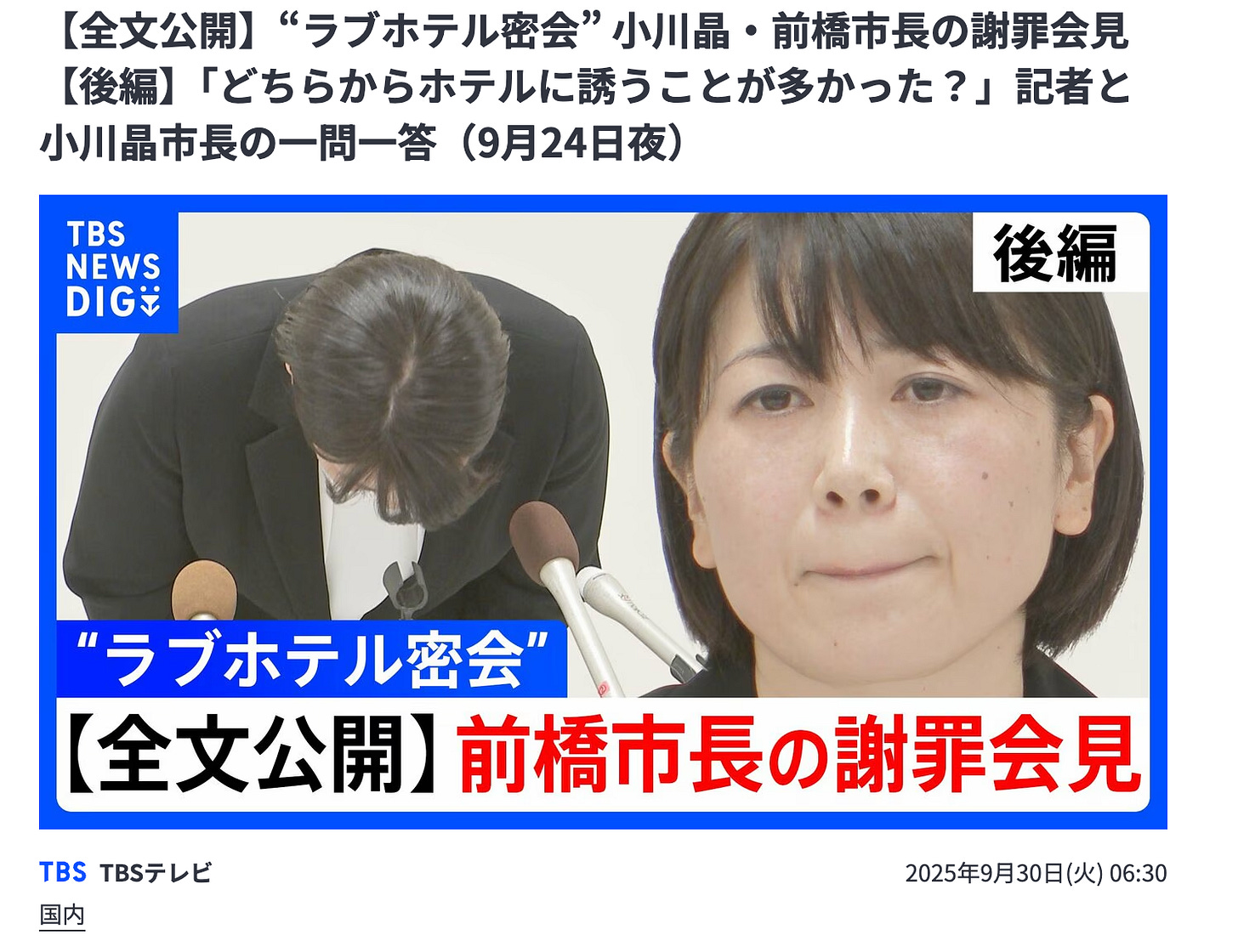
I’ve previously written about why Japanese people don’t speak English, but the same holds true in reverse. Japanese is a notoriously tough language to learn for foreigners, and the few who do learn it rarely get to a level where they can regularly interact with untranslated resources. The pool of people who are functionally fluent in Japanese, employed to produce professional commentary on Japan, and are good writers to boot is, as you can probably guess, infinitesimally small. That’s not the end of it either. Within this narrow criteria, there are plenty of grifters in the small world of Japan coverage who have outrage to push and narratives to sell. You will be shocked how deep this rabbit hole can get after reading how much of Tokyo Vice was made up.

Of course, there are exceptions. The Japan Times under its current editorial leadership has done a far better job producing articles on more esoteric, but still fascinating Japan-related subjects compared to its direction in the past. I highly recommend journalist Alex Martin’s work. Tobias Harris, who wrote a fantastic book on the late Prime Minister Shinzo Abe, is the gold standard for English-language commentary on Japanese politics and his Substack publicaition Observing Japan comes highly recommend. Another reliable commentator is Gearoid Reidy, a voice of reason amid a sea of fear-mongering with his well-written columns.
Because most on both sides of the Pacific don’t really know each other’s languages, however, a significant gap in knowledge remains. Some people who got famous writing about Japan like Pico Iyer barely even speak Japanese! As Damien Flanagan argued a few years ago, this does not immediately disqualify you from cultural commentary, but I would still push back and say that it does cast doubt on your reliability as an expert if you can’t even speak to a country’s people in their own language. Considering how discourse around Japan can quickly devolve into a game of Chinese whispers due to a lack of linguistic knowledge, you really need to take the time to separate the wheat from the chaff in deciding whose opinions are reliable.
Japanese soft power creates self-proclaimed “experts”
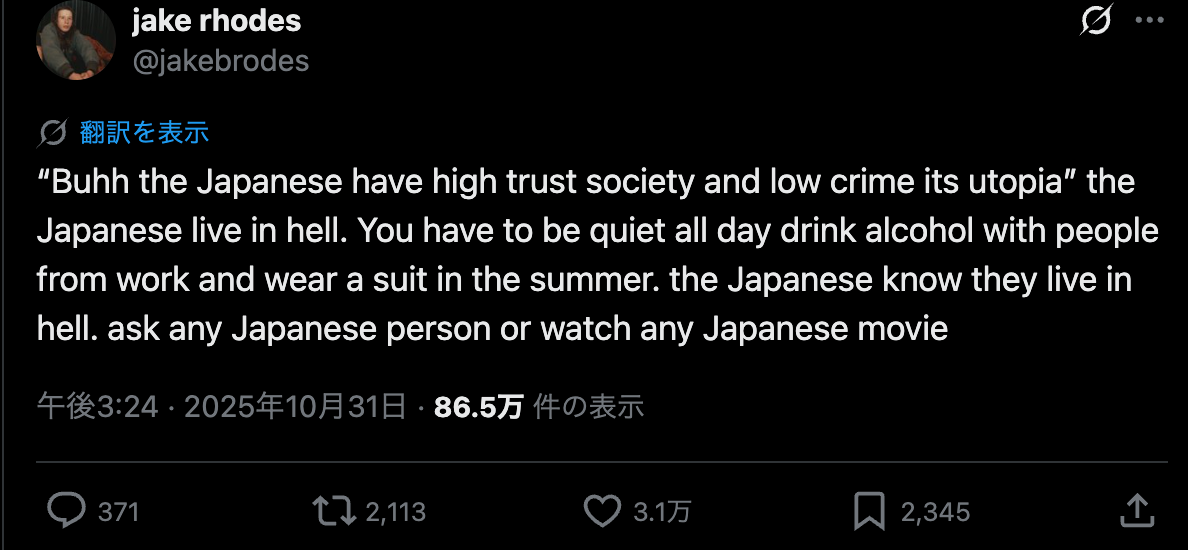
For the handful of genuine experts who produce insights on Japan, there are also the weeaboos who fashion themselves as “experts.” Presently, global interest in Japan is probably at an all-time high. The weak yen is drawing in millions of tourists from across the world, and the popularity of “soft power” from anime and video games means that more people are paying attention to this country than ever. Yet many of these observations are often surface level and not very meaningful.


